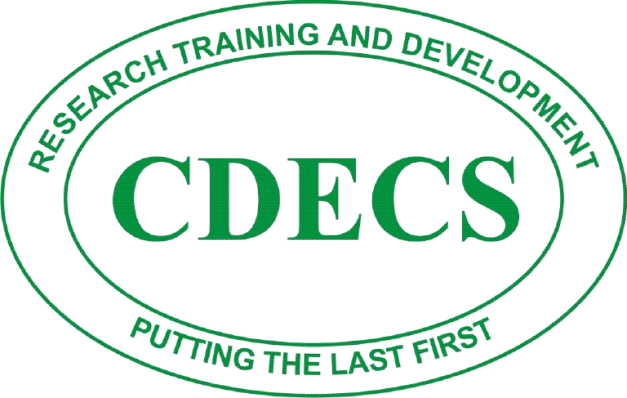Research Evaluation & Assessment Studies
Research Evaluation & Assessment Studies
In the plethora of CDECS, Research and studies are vital for societal advancement, programme betterment, shaping the programmatic strategy and inputs, and individual growth. They drive the discovery of new knowledge, fuel innovation, and help solve critical problems across various fields. Furthermore, engaging in research and study cultivates critical thinking, problem-solving skills, and a deeper understanding of the world.
The academic journey is vital in the organization evolution. The core values lies in supporting the governance, Government departments and Ministries, UN organization, bilateral agencies and the system in meeting the need of research, monitoring, evaluation, impact assessment, Base line, Mid line and End Line assessment studies and Policy studies.
As an organization, Research, Monitoring & Evaluation/ Impact Assessment studies/Third Party Evaluation/ Base line/ Mid-line/End line studies are the core areas. It is privilege to work in multi-states in the studies related to Socio-economic development, Land Management, Social Impact assessment, Governance, Rural Development, Food Security, Forest and Environment & Climate Change, Health & Nutrition, Water & Sanitation, Soil & Water Conservations, Infrastructure development and Education initiatives etc.
CDECS has consistently partnering evidence-driven development through rigorous research, continuous monitoring, and credible third-party evaluations. These efforts enable stakeholders to assess effectiveness, identify gaps, enhance accountability, and inform policy and practice across sectors.
In total we have completed 450+ studies & evaluation across on Pan India basis.
Research and Knowledge Generation
CDECS undertakes applied research and thematic studies to generate context-specific knowledge that supports inclusive development.
Key Areas of Research:
- Concurrent Evaluation of National Food Security Act, 2013
- Cross verification studies
- Social Impact Assessment under Right to Fair Compensation Transparency in Land Acquisition Resettlement & Rehabilitation Act, 2013 and State Rules
- Assessment Studies related to Jal Jeevan Mission
- Land Management –Urban & Rural Land
- Impact Assessment of DILMP (Digital India Land Management Programme)
- Impact Assessment of NGDRS (National Generic Document Registration System
- Water, Sanitation, and Hygiene (WASH) behavior and infrastructure gaps
- Status of women and children in rural and tribal belts
- Functionality of Anganwadi Centres and health service delivery
- Nutrition practices, food security, and maternal-child health
- Education access, dropout causes, and learning outcomes
- Rural governance, PRI functioning, and community participation
Research is conducted through surveys, FGDs, KIIs, case studies, and PLA tools, ensuring community voice and participation.
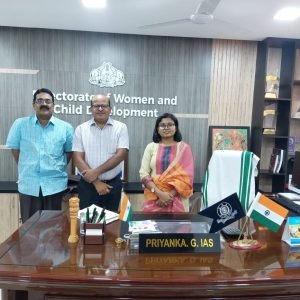
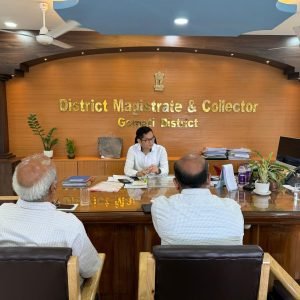
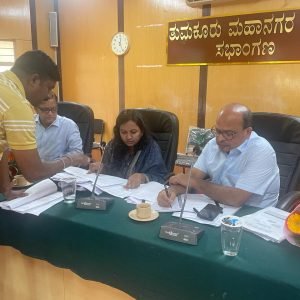
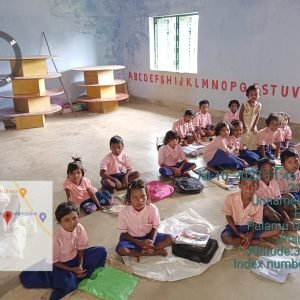
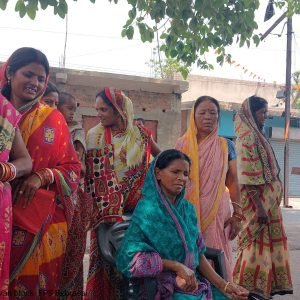
Monitoring and Concurrent Evaluation
CDECS has developed robust monitoring systems to track real-time progress, output delivery, and community engagement in its field projects.
Monitoring Tools & Approaches:
- Development and use of monitoring indicators, checklists, and field scorecards
- Regular field visits, process documentation, and feedback loops
- Use of mobile-based data collection and GIS mapping(where applicable)
- Preparation of monthly and quarterly progress reportsfor donors and stakeholders
- Community-based monitoringthrough SHGs, youth groups, and PRIs
This continuous learning approach improves project implementation and fosters local ownership.
Third-Party Evaluation and Impact Assessments
CDECS has been empanelled by various agencies and has successfully conducted third-party evaluations and impact studies of government and donor-funded schemes The evaluations provide independent, unbiased insights to improve service delivery and scale-up effective practices.
Surveys and Baseline/Endline Studies
CDECS has conducted numerous baseline, midline, and end line surveys to capture data on demographics, land related matters, NFFA Act 2013, RFCTLAR&R Act 2013, health indicators, WASH practices, livelihoods, nutrition and education status.
Studies, Evaluation & Survey Competencies
Survey, evaluation, and studies competencies involve the ability to systematically collect, analyze, and interpret information to assess performance, identify areas for improvement, and guide decision-making. These competencies are crucial for effective planning, evaluation, and development across various fields, including education, business, and social sciences.
- Design of tools and sampling frameworks
- Data collection using digital tools (ODK/KoBoToolbox/Survey CTO)
- Training and deployment of field investigators
- Statistical analysis and reporting using SPSS, STATA, or Excel
- Gender and equity lens integrated into analysis
1 Survey Competencies:- Survey Design:
- Survey Administration:
.- Data Analysis:
- Evaluation Competencies:
- Needs Assessment:
- Evaluation Planning:
- Data Collection:
- Data Analysis and Interpretation:
- Report Writing and Dissemination:
- Study Competencies:
- Research Design:
- Literature Review:
- Data Collection:
- Data Analysis and Interpretation:
- Report Writing and Dissemination:
In organization view the competencies are crucial for:- Performance Improvement:Identifying strengths and weaknesses to guide training and development efforts.
- Decision-Making:Providing evidence-based information to support informed decisions.
- Resource Allocation:Optimizing the allocation of resources based on identified needs and priorities.
- Program Evaluation:Assessing the effectiveness of programs and initiatives.
- Continuous Improvement:Fostering a culture of ongoing learning and improvement.
